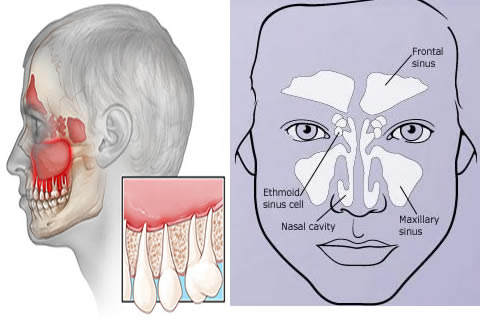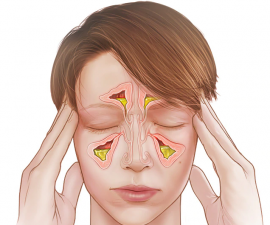… Continued …
- An aggregation of pus at the end of the tooth (periapical abscess), which usually occurs due to bacterial infection.
- Receding gums, a condition in which the gums shrink, exposing more sensitive areas of the tooth root.
- Cracked tooth. It’s usually difficult to see this crack with naked eye.
There is also pain or ache similar to toothache that has nothing to do with your teeth. The pain can occur even though the dental pulp is not inflamed. It can arise from somewhere else. And this kind of toothache is what we’re talking about in this section. It can be a consequence of the following conditions:
- An aggregation of pus in the gums (periodontal abscess).
- Ulcers that occur on the gums.
- An injury that affects temporomandibular joint, essential joint that attaches the jaw to the skull.
People with sinusitis can also have pain similar to toothache, especially true if the inflammation affects sinuses that are close to the teeth – see the image below (credit to Mayo and WebMD).
If the inflammation of sinusitis does cause pain similar to toothache, it is likely to occur in the upper rear teeth (or around the upper jaw). The pain is less likely to affect the bottom teeth.
How long does sinus toothache usually take to go away?
Sinusitis can be more painful if it affects your upper jaw. This symptom can be one of the hardest things to deal with, but it is usually not serious and will not hurt your teeth.
“Sinus toothache should improve once the inflammation of the affected sinus relieves. How long does it last? The answer can vary, but typically it lasts a few days or weeks.
How long this symptom takes to go away may also be dependent on the following factors:





